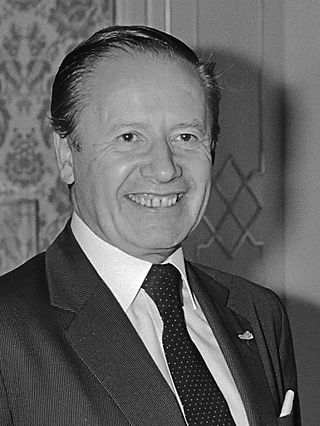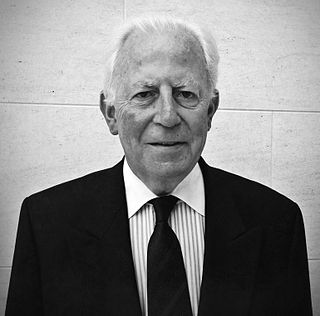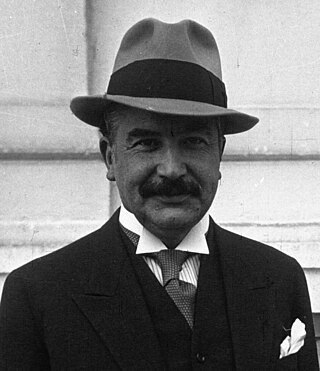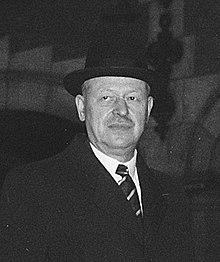
The Christian Social People's Party, abbreviated to CSV or PCS, is the largest political party in Luxembourg. The party follows a Christian-democratic and conservative ideology and, like most parties in Luxembourg, is strongly pro-European. The CSV is a member of the European People's Party (EPP) and the Centrist Democrat International (CDI).

The Luxembourg Socialist Workers' Party, abbreviated to LSAP or POSL, is a social-democratic, pro-European political party in Luxembourg. The LSAP sits on the centre-left of the political spectrum.

The Democratic Party, abbreviated to DP, is the major liberal political party in Luxembourg. One of the three major parties, the DP sits on the centre-right, with some centrist factions holding moderate market liberal views combined with a strong emphasis on civil liberties, human rights, and internationalism. The Democratic Party's traditional ideological spectrum was evaluated as conservative-liberal, but now it is often evaluated as social-liberal.

Pierre Dupong was a Luxembourgish politician and statesman. He was the 16th Prime Minister of Luxembourg, serving for sixteen years, from 5 November 1937 until his death, on 23 December 1953, and was also responsible at different times for the ministries of finance, the army, agriculture, labour and social matters. He founded the Christian Social People's Party (CSV) as the main conservative party after the Second World War, having been a founding member of the Party of the Right (PD) in 1914.
The National Union Government was a form of national government that governed the Grand Duchy of Luxembourg between 1945 and 13 February 1947, in the direct aftermath of the Second World War. During the war, Luxembourg was invaded, occupied, and annexed by Nazi Germany. Just one of the Luxembourgish casualties of the conflict was the pre-war political system; most of the established parties and alliances disappeared, and some of the leading politicians had lost their lives.

The first Juncker–Asselborn Ministry was the government of Luxembourg between 31 July 2004 and 23 July 2009. It was led by, and named after, Prime Minister Jean-Claude Juncker and Deputy Prime Minister Jean Asselborn.

The Juncker–Polfer Ministry was the government of Luxembourg between 7 August 1999 and 31 July 2004. It was led by, and named after, Prime Minister Jean-Claude Juncker and Deputy Prime Minister Lydie Polfer.

The Thorn Ministry was the government of Luxembourg between 15 June 1974 and 16 July 1979. It was led by, and named after, Prime Minister Gaston Thorn. Throughout the ministry, Thorn's Democratic Party formed a coalition with the Luxembourg Socialist Workers' Party (LSAP). At first, the Deputy Prime Minister was Raymond Vouel, but he left to become European Commissioner in 1976, and was replaced by Bernard Berg.

The Santer-Poos III Ministry was the government of Luxembourg between 13 July 1994 and 26 January 1995. It was the third of three led by, and named after, Prime Minister Jacques Santer. Throughout the ministry, the Deputy Prime Minister was Jacques Poos.

The second Werner-Schaus Ministry was the government of Luxembourg between 6 February 1969 and 15 June 1974. Throughout the ministry, the Deputy Prime Minister was Eugène Schaus, replacing Henry Cravatte, who had been Deputy Prime Minister in the Werner-Cravatte Ministry.

The Werner-Cravatte Ministry was the government of Luxembourg between 15 July 1964 and 6 February 1969. Throughout the ministry, the Deputy Prime Minister was Henry Cravatte, replacing Eugène Schaus, who had been Deputy Prime Minister in the first Werner-Schaus Ministry. It was a coalition between the Christian Social People's Party (CSV), and the Luxembourg Socialist Workers' Party (LSAP).

The first Werner-Schaus Ministry was the government of Luxembourg between 2 March 1959 and 15 July 1964. It was a coalition between the Christian Social People's Party (CSV), and the Democratic Party. It was formed after the general election of 1959.
The Frieden Ministry was the government of Luxembourg between 29 March 1958 and 23 February 1959 until the death of Pierre Frieden. It was a coalition between the Christian Social People's Party (CSV), and the Luxembourg Socialist Workers' Party (LSAP).

The Bech-Bodson Ministry was the government of Luxembourg between 29 December 1953 and 29 March 1958. It was a coalition between the Christian Social People's Party (CSV), and the Luxembourg Socialist Workers' Party (LSAP).
The Dupong-Schaus Ministry was the government of Luxembourg between 1 March 1947 and 3 July 1951. It was a coalition between the Christian Social People's Party (CSV), and the Democratic Group.
The following lists events that happened during 1951 in the Grand Duchy of Luxembourg.

The Luxembourgish government in exile, also known as the Luxembourgish government in London, was the government in exile of Luxembourg during the Second World War. The government was based in London between 1940 and 1944, while Luxembourg was occupied by Nazi Germany. It was led by Pierre Dupong, and also included three other Ministers. The head of state, Grand Duchess Charlotte, also escaped from Luxembourg after the occupation. The government was bipartite, including two members from both the Party of the Right (PD) and the Socialist Workers' Party (LSAP).
The Liberation Government was formed on 23 November 1944, when the government in exile came to Luxembourg from London and felt forced to include members of the Unio'n vun den Fraiheetsorgansatiounen, the umbrella group of the Luxembourgish Resistance which had been maintaining order since the liberation by American troops on 10 September 1944, in order to tame its critics.

The Dupong-Krier Ministry took office in Luxembourg on 5 November 1937 after the resignation of the prime minister Joseph Bech, due to the result of a referendum on the so-called Maulkuerfgesetz.

The Bech Ministry was the government of Luxembourg that came into office in Luxembourg on July 16, 1926 after the resignation of the Prüm Ministry, and was headed by Joseph Bech. It was reshuffled on April 11, 1932 and on December 27, 1936. It stepped down after the referendum on the so-called Maulkuerfgesetz, in which the majority of voters decided against the law.











